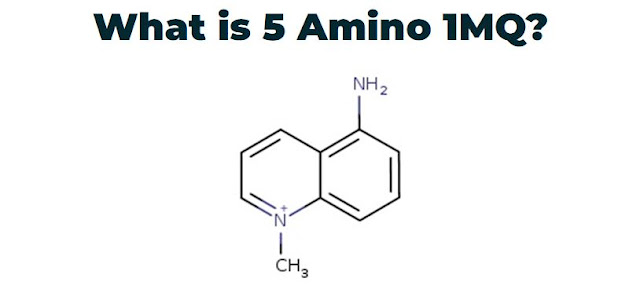
Metabolic disorders are a group of medical conditions that affect the body's metabolism, leading to various health issues. These disorders, such as diabetes, obesity, and cardiovascular diseases, have become a global concern due to their increasing prevalence and impact on individuals' overall well-being. Researchers are exploring new therapeutic approaches to tackle these disorders in recent years. One potential breakthrough in metabolic disorders is using NNMT inhibitors like 5 amino 1mq. This article will delve into the concept of NNMT inhibitors and explore their potential as a revolutionary treatment option.
The Role Of 5-Amino-1MQ
The enigmatic 5-amino-1MQ assumes a pivotal role in health and wellness. As an inhibitor of the enzyme NNMT, it possesses the potential to modulate metabolism and inflammation. By targeting NNMT, it may impact conditions such as obesity, diabetes, and age-related ailments. Nevertheless, unraveling its precise mechanisms and establishing its therapeutic applications necessitates further investigation. Consultation with healthcare professionals is crucial for comprehending the role of 5-amino-1MQ and its implications for overall well-being.
Introduction To Metabolic Disorders
Metabolic disorders are characterized by abnormalities in the body's metabolic processes, including converting food into energy, storing nutrients, and regulating hormones. These disorders can result from genetic factors, lifestyle choices, or both. Metabolic disorders can severely affect an individual's health, leading to complications such as insulin resistance, high blood pressure, and dyslipidemia.
Understanding NNMT And Its Role In Metabolism
NNMT, short for Nicotinamide N-Methyltransferase, is an enzyme that plays a crucial role in the body's metabolic pathways. Its primary function is to methylate nicotinamide, a form of vitamin B3, to produce methyl-nicotinamide. Studies have shown that elevated levels of NNMT are associated with metabolic disorders such as obesity and type 2 diabetes.
The Potential Of NNMT Inhibitors
NNMT inhibitors are a class of compounds that can suppress the activity of the NNMT enzyme. By inhibiting NNMT, these compounds aim to restore the normal metabolic balance in the body. This approach holds significant promise in the field of metabolic disorders for several reasons:
1. Regulation Of Energy Metabolism
NNMT inhibitors can potentially regulate energy metabolism by influencing key metabolic pathways. They can modulate the metabolism of nutrients, such as glucose and fatty acids, thereby preventing excessive fat storage and promoting energy expenditure.
2. Anti-Inflammatory Effects
Inflammation is closely associated with metabolic disorders, and NNMT inhibitors have shown anti-inflammatory properties in preclinical studies. These inhibitors may alleviate insulin resistance and other metabolic abnormalities by reducing inflammation.
3. Impact On Insulin Sensitivity
Insulin resistance is a hallmark of metabolic disorders, particularly type 2 diabetes. Studies suggest that NNMT inhibitors can enhance insulin sensitivity, allowing cells to respond more effectively to insulin and regulate blood glucose levels.
4. Potential For Weight Management
Obesity is a risky factor for metabolic disorders, and NNMT inhibitors like 5 amino 1mq may offer a novel approach to weight management. By targeting the underlying metabolic dysregulation, these inhibitors could potentially aid in weight loss and prevent obesity-related complications.
The Road Ahead: Challenges And Future Prospects
While NNMT inhibitors show great promise, there are still several challenges to overcome before they can become a widely available treatment option for metabolic disorders. Some of the key challenges include:
Efficacy: Further research is needed to determine the long-term efficacy and safety of NNMT inhibitors in human trials.
Specificity: Developing NNMT inhibitors that selectively target the enzyme without affecting other essential metabolic pathways is crucial.
Accessibility: NNMT inhibitors need to be formulated into effective drugs that can be easily administered and readily available to patients.
Despite these challenges, the potential breakthrough that NNMT inhibitors represent in the field of metabolic disorders is a cause for optimism. Continued research and clinical trials will provide valuable insights into their efficacy and pave the way for their integration into the existing treatment landscape.
Conclusion
Metabolic disorders pose a significant burden on global health, affecting millions of individuals worldwide. The emergence of NNMT inhibitors like 5 amino 1mq as a potential breakthrough in the biotech field brings new hope for the treatment of these disorders. By targeting the underlying metabolic dysregulation, NNMT inhibitors have the potential to restore metabolic balance, improve insulin sensitivity, and manage weight effectively. While there are challenges to overcome, the future looks promising for these innovative therapeutic approaches.
